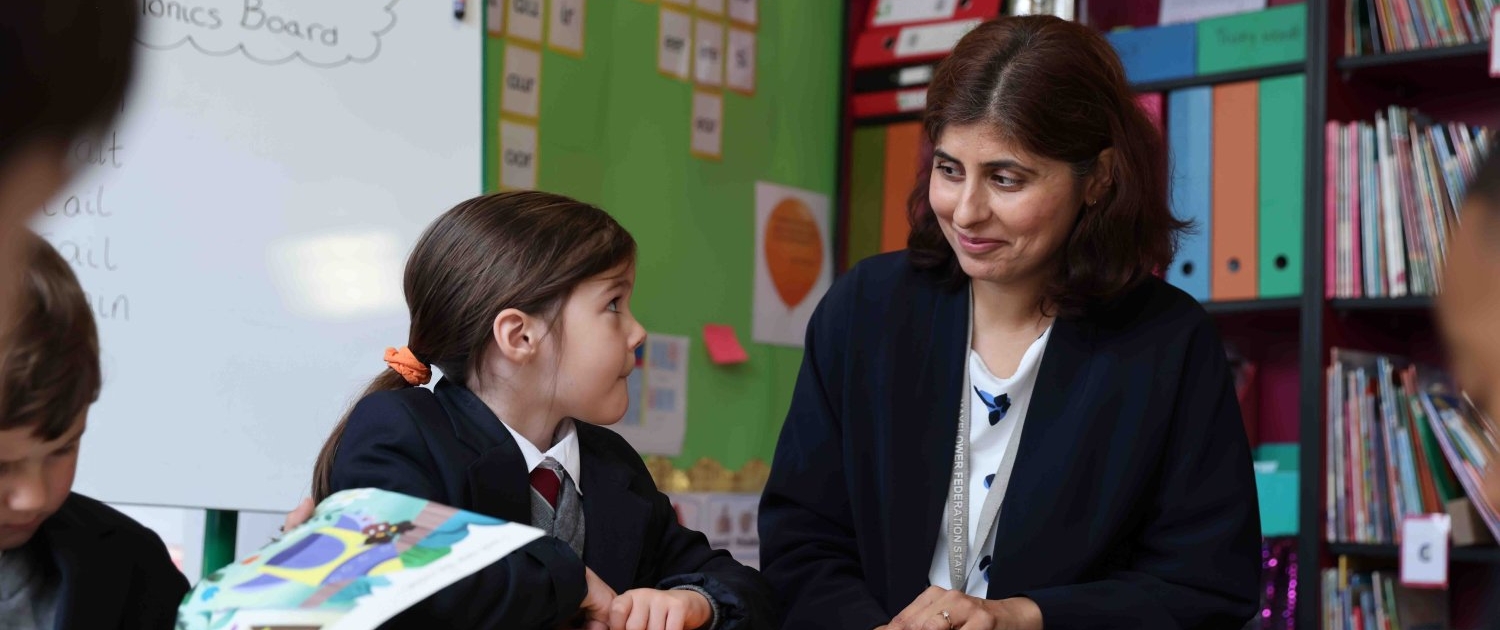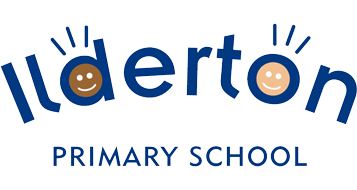Mayflower Safeguarding Statement
Mayflower Federation are committed to safeguarding and promoting the safety and welfare of all our children.
Safeguarding is everybody’s responsibility. This safeguarding statement applies to all staff, governors, volunteers, and other adults working in, or on behalf of, our school. It is an over-arching document which pulls together all of our safeguarding policies and procedures, including our Child Protection Policy and Safeguarding policy which can be found on the school website.
All school staff undertake annual child protection training, and children are made aware of the adults they can talk to if they have any concerns. We know how important it is to listen to our pupils and take seriously what they tell us. Staff are trained to look out for signs of physical/emotional harm or neglect and are required to report these to the Designated Safeguarding Lead (DSL). On rare occasions where our concern about a child means that we have to consult other agencies, we ensure that these concerns are discussed with parent/carers first in line with our Child Protection Policy.
Designated Safeguarding Lead:
Phoenix: Ms Joines (Head of School)
Ilderton: Mr Ogunsola (Head of School)
Deputy Designated Safeguarding Leads:
Phoenix: Mr Assig, Ms Hayes, Ms Claff, Ms Poplett & Mrs Duffy
Ilderton: Mr Assig, Ms Marchese, Ms Reefa.
The Governor with responsibility for safeguarding in our schools is Theresa Kelly .
If you are worried about a child, please contact us through the school office or by email.
Keeping Children Safe in Education
Mayflower Federation, like all schools and colleges in England, follows the Keeping Children Safe in Education statutory guidance from the Department for Education when carrying out our duties to safeguard and promote the welfare of children. This guidance can be accessed here.
Safer Recruitment and Selection
We ensure that all appropriate measures are applied in relation to everyone who works in the school who is likely to be perceived by the children as a safe and trustworthy adult, including volunteers and staff employed by contractors.
Our safer recruitment practice pays full regard to current DFE guidance Safeguarding Children and Safer Recruitment in Education.
The DSL, deputy DSLs and governor responsible for safeguarding undertake safer recruitment training. Our Safer Recruitment policy is in line with the NYSCP guidance and is available from the school office.
Whistleblowing
If members of staff, volunteers or governors have any concerns about people working in a paid or unpaid capacity with children, they have a duty of care (and in some cases a professional duty) to inform management accordingly. This can be done in writing or verbally and such issues will be managed with sensitivity and the necessary degree of confidence.
The school follows the Local Authority’s policy on whistleblowing and a copy of the School Whistleblowing Policy is available on the school website or from the school office.
Safeguarding Information for Pupils
All children in our school are aware of a number of adults in school who they can talk to. The school is committed to ensuring that pupils are aware of behaviour towards them that is not acceptable and how they can keep themselves safe.
All pupils know that we have a senior member of staff with responsibility for child protection and know who this is. They know where they can get additional support from other agencies, for example the NSPCC and Childline, and how they can access this support.
Children are taught, through PSHE lessons, assemblies, awareness days and through day-to-day interactions with adults, ways they can keep themselves safe both in real life situations and online.
Frequently asked questions
Who can I talk to if I need support for my child?
All members of staff are trained to support parents/ carers in the event that help is needed. The Mayflower Federation take a proactive approach and want to work with families to offer support where we can or refer to partner agencies who may be able to specific and specialist assistance. This type of support is called Early Help. If you have any concerns, please do not hesitate to seek guidance from Ms Reefer (Ilderton) or Ms Duffy (Phoenix) you can also approach your child’s class teacher, or any member of the staff team as all will be pleased to help. You can also contact a member of the senior leadership team who will be able to assist you to support your child.
Does the school have any advice to support me parenting my child?
We are happy to provide assistance if a parent/ carer requires support with parenting their child. We have many sources to draw upon and it is important to seek help and advice if you feel you need it.
Remember the following advice:
- Take a deep breath… then another. Then remember you are the adult.
- Close your eyes and envision you are hearing what your child is about to hear from your mouth. How does that sound? Words are powerful.
- Press your lips together and count to 10… or 20.
- Put your child in a time‐out chair (one minute for each year of their age).
- Put yourself in a time‐out! Think about why you are angry; is it your child, or are you venting your anger and frustrations on your child? Are you hungry, tired, upset about something else?
- Seek support – your co- parent, phone a friend, speak to someone you trust and respect to help you regain composure and perspective.
- If someone can mind your children, go outside and take a walk.
- Take a hot bath or splash cold water on your face. Hug a pillow!
- Turn on some music, perhaps even sing along.
- Contact Family lives they run a confidential helpline for parents. (helpline number is 0808 800 2222) They offer emotional support, information, advice and guidance on any aspect of parenting and family life. https://www.familylives.org.uk/how-we-can-help/confidential-helpline
- Contact Young Minds (Young Minds Parent Helpline – 0808 802 5544) if you’re worried about your child ‘s mental health or wellbeing, you can speak to them over the phone or chat to them online. The helpline provides detailed information, advice and support to parents or main carers of children and young people aged 25 or under. https://www.youngminds.org.uk/parent
Stopping Physical Chastisement
We take a firm stance that smacking is not appropriate to manage or deal with children’s behaviour. Smacking is a temporary solution to ongoing problems. It generally is nothing more than a release of the parent’s frustration directed toward the child.
Without a doubt parenting is the most important job in the world and it can be frustrating and isolating at times. Here are 10 alternatives to smacking that you might find helpful.
- Provide options. A choice gives some control back to the child on the parents’ terms. Learning this skill can result in children who are more compliant and better at making decisions!
- You take a timeout. Yes, you the parent, walk away! It is perfectly okay to say. “I’m too upset to deal with you right now; we will talk about this later.”
- Get someone else involved. If you feel so angry that you may not be in control, then ask someone else to help you who is not as personally involved in the situation. This reduces the likelihood that you will strike your child.
- Teach them what you expect. Instead of punishing them for misbehaving, teach them what they can do differently. Tell them, “Next time, please hang your uniform up in the wardrobe! How can I help you remember to do this?”
- Acknowledge their positive behaviours. So, when they hang up that uniform, tell them how much you appreciate that! It’s very easy to mainly notice children’s misdoings and disregard their successes.
- Timeout. The general guideline is one minute for every year of their age. The idea is you are tying the misbehaviour to the consequence. Try to make it a place that is quiet and the child is unable to get your attention or be inadvertently rewarded. If a child is having a tantrum then their time should start when they have calmed down and can keep it under control for the duration of the timeout. Time out is a challenge for both parent and child but persevere and keep calm.
- Consequence. Providing a logical consequence is often very effective. Always tie the consequence back to the misdeed. “I would love to be able to take you to the shops but remember the last time how you ran around and wouldn’t listen to me? Well, I am not up for that. You are staying home with……” Maybe next time, you will be able to listen and you can come with me.”
- Pick your battles. Pick the top four things that you just can’t tolerate and focus on disciplining them just for those four behaviours. This lets your child know what is really important to you and you don’t come across as if you are disciplining them for every little violation.
- Set limitations. Instead of telling your children what to do, try telling them what you are going to do or permit. “I will be more than happy to take you to the Park, when you have finished your chores.”
- State your request in the positive. Have you ever noticed how we usually make a request or give directives in the negative? The first thing your child hears… what they can’t have. Just by changing the structure of how you make request will increase your child’s cooperation. Try stating things in the positive by telling them what they can have or what you will allow. They are less likely to argue when you are telling them what they can have or what you will allow.
What external organisations do Mayflower Federation work with that may help me?
If there is an emergency or you think a child may be in imminent danger, please call 999.
Encompass
We work closely with Operation Encompass which directly connects the police with schools to secure better outcomes for children who are subject or witness to police-attended incidents of domestic abuse. Rapid provision of support within the school environment means children are better safeguarded against the short, medium and long-term effects of domestic abuse. This enables us to support you and your children immediately after an incident.
Safe Space
Southwark Safe Spaces are for those experiencing or recovering impact of domestic abuse. We understand that many people experiencing domestic abuse are unable to make a safe phone call from home or on a mobile phone. A Safe Space is a confidential, private and safe room for people who are experiencing domestic abuse, where they can access resources for support and make a phone call to get help. There are 72 Safe Spaces rooms across the Southwark, they will carry the Safe Spaces logo. Please note, our Federation is also a registered Safe Space for anyone experiencing domestic violence If you wish to access or find out more about this service please come to the reception and ask about ‘Safe Space’ Safe Spaces. Find more information and support if you’re experiencing domestic abuse.
NSPCC: 0808 800 5000 or help@nspcc.org.uk
NSPCC – THE PANTS RULE
What does the acronym PANTS mean?
PANTS is a simple and clever acronym devised to teach children the underwear rule:
Privates are private.
Always remember your body belongs to you.
No means no.
Talk about secrets that upset you and
Speak up, someone can help.
Why is it so important to talk PANTS? It’s important that your child understands these rules and knows how to stay safe. We understand that conversations like this can be difficult for both you as a parent and for your child. You don’t want to scare or upset your children, and you may feel it’s too soon – but PANTS has been created specifically to make sure these conversations are as easy and appropriate as possible for children between the ages of 4-11. https://www.nspcc.org.uk/keeping-children-safe/support-for-parents/pants-underwear-rule/
Samaritans:
Phone Number: 116 123
Social Care
It is important to note it is unlikely that emails will be read outside of the school’s working hours (8.30am – 4.30pm, Monday – Friday term time), however, you should receive a response within 48 hours during term time.
If you require support with an urgent safeguarding concern that cannot wait until we are back in school you may find it helpful to contact one of the following agencies:
Southwark Multi Agency Safeguarding Team (MASH) 02075251921
Lewisham Multi Agency Safeguarding Team (MASH) 02073146660
Do you have any advice for keeping my child safe online?
Online Safety Information for Parents
How did you teach your child to cross the road? – Did you talk to them once and then let them get on with it? Of course, you didn’t! Just as we guide our children in their offline lives, we must ensure we guide them through their online life too. You may not be the expert in the technology, but you are the expert in keeping them safe. Online safety is huge and it can be difficult to know where to start.
Here are some basic rules:
1) Communicate with your children about their online life from an early age. Make it a normal part of your dialogue. The sooner you start this, the better.
2) Children need to know that they can talk to you (or another trusted adult) if they come across anything online that makes them feel uncomfortable. They must know that they can do this without fear of being reprimanded.
3) There are 3 basic things to consider when your children are online: content (what they can see), contact (who they may come into contact with) and conduct (their own behaviour online).
For more information about this, please see the following: https://www.saferinternet.org.uk/advice-centre/parents-and-carers/what-are-issues
4) Come up with a family agreement around technology use. Do this together with your child, the more invested they are in creating the agreement the more likely they will adhere to it. See the following link for support with how to draw up a family agreement: https://www.childnet.com/resources/family-agreement
Where can I go for support and help?
The amount of resources out there can be very overwhelming for parents. Here are some of the best:
1) The NSPCC has fantastic resources for online safety: WWW.NSPCC.ORG.UK/PREVENTING-ABUSE/KEEPING-CHILDREN-SAFE/ONLINE-SAFETY/
2) Alan Mackenzie is an online safety adviser who releases a half termly newsletter for teachers and parents. You can visit his website to sign up to receive this: https://www.esafety-adviser.com/
3) Common sense media https://www.commonsensemedia.org/ has a fantastic ‘Parents need to know’ section. This includes really helpful guides for frequently used apps etc.
4) CEOP (Child Exploitation Online Protection) has a wealth of resources for parents. This website is unique, as CEOP is informed by up to date information received by the National Crime Agency so all the information reflects current trends and issues. https://www.thinkuknow.co.uk/parents/ and https://parentinfo.org/.
5) Confused with all the different social networking sites which children can access? We’ve found this great resource from the NSPCC which describes the most popular sites and offers plenty of information and top-tips for each site (including recommended age limits). https://www.net-aware.org.uk/ You can also read reviews written by other parents.
6) Is your child into gaming? If they are, this website is a very useful resource WWW.ASKABOUTGAMES.COM/ WWW.COMMONSENSEMEDIA.ORG/ WWW.THINKUKNOW.CO.UK/PARENTS/
7) Please have a look at these resources for our youngest pupils, designed to protect them from being coerced or tricked into exposing themselves while online
https://lgfl.net/sites/default/files/LgflNet/downloads/digisafe/LGfL-DigiSafe-undressed-lyrics.pdf
Use this fun, interactive and downloadable board game to support your KS2 child with learning key concepts related to online safety. As they make their way around the game board, children will encounter scenarios that they have to think about and respond to, as well as opportunities to discuss their own online safety behaviour. https://landing.lgfl.net/hubfs/SafeguardED/LGfL-Digital-Explorers-Online-Safety-Game.zip


